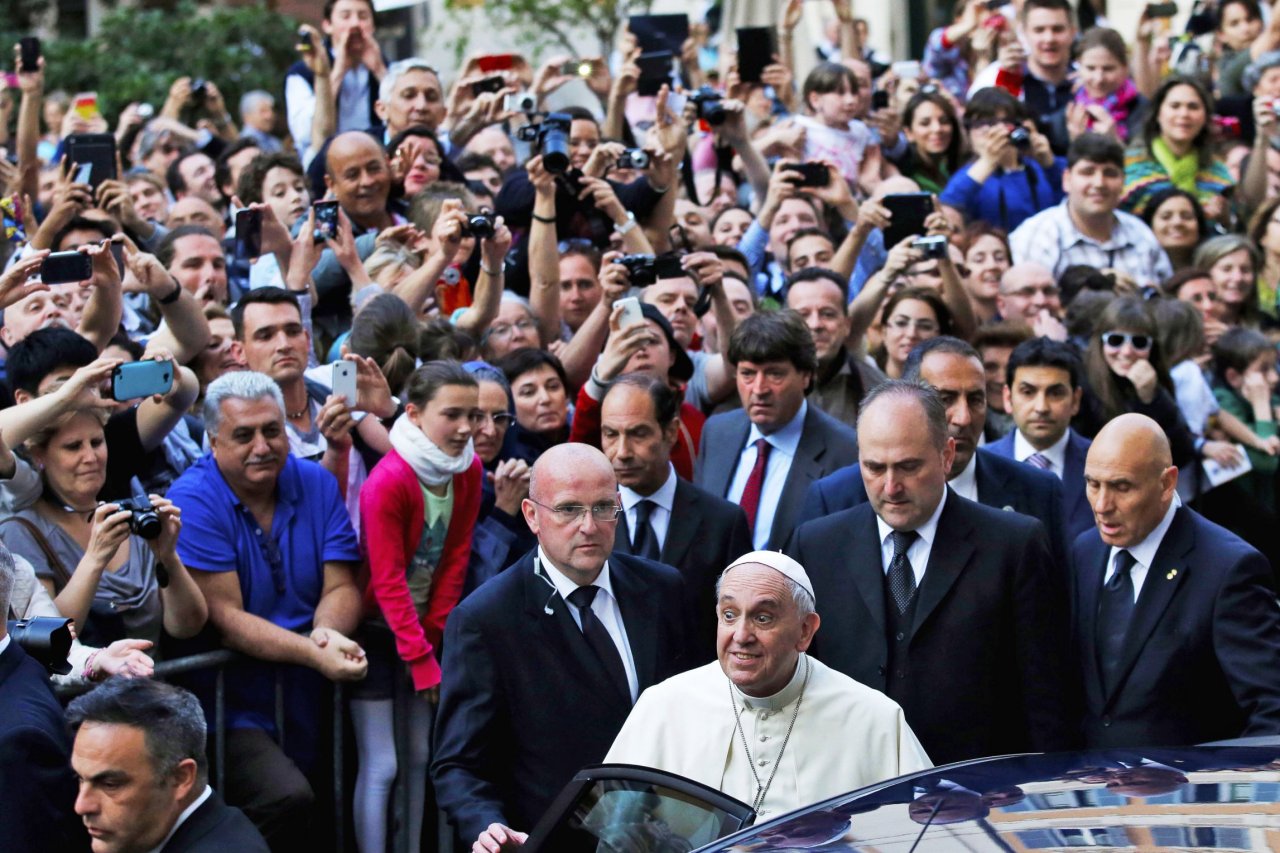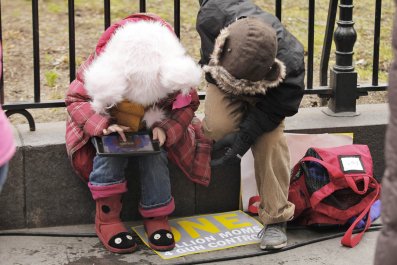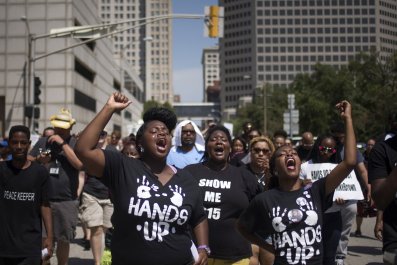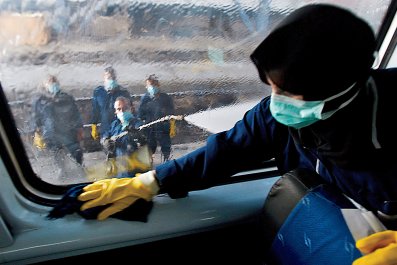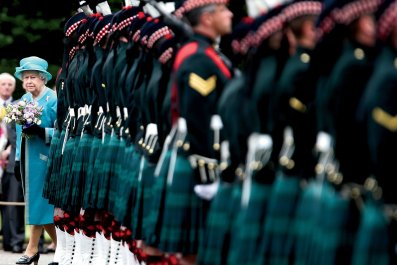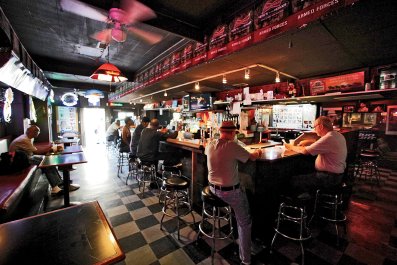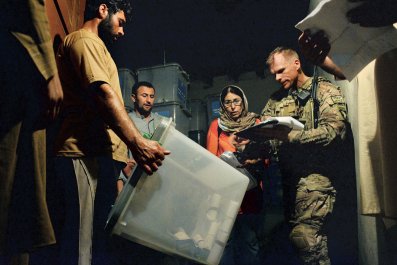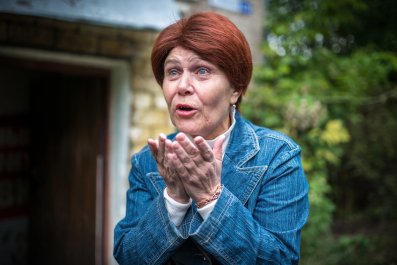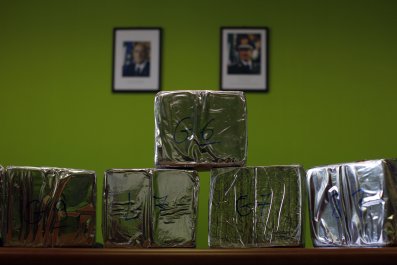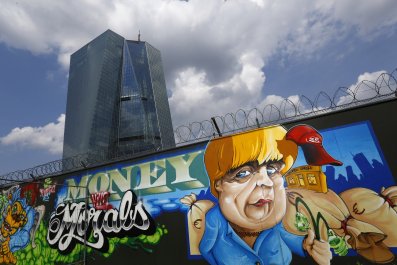Is the Pope a Catholic? Of course. But Francis is a Jesuit, too: a member of the elite worldwide Society of Jesus (SJ) founded in 1540 by St Ignatius of Loyola, its organisation and discipline reflecting his military background. Soldiers for Christ or God's awkward squad, self-regarding or selfless – depending on the point of view – for the first time in history this Catholic order has its own man as pontiff.
Francis, 77, has started with extraordinary acts of honesty, humanity, humility and humour. At the global level, he has raised eyebrows and cheers with his remarks about homosexuality. ("Who am I to judge?") He has encouraged debate and discussion in inter-faith circles and tried to further peace in the Middle East. Within his own domain he has acted with equal flair. He has swept away the church's entire banking regulatory board to replace them with anti-money-laundering experts, and openly acknowledged the terrifying scale of paedophilia among his clergy. At a personal level, he has endeared himself through his acts of tenderness to the physically afflicted. He has shown more mastery of his brief than any Pope in memory. Now, commentators are ascribing the Argentine prelate's success to his 15-year Jesuit training and subsequent 20 years in the order.
"The Jesuits encourage open minds," says the order's British spokesman Ged Clapson, a former religious broadcaster. "They believe that, in all matters, even religious ones, the truth has to be interrogated. Yes, they assert church dogma, but they also adapt to their environment, and will bend over backward to try and understand other views."
In the 17th century, for example, that meant the adoption of some Buddhist symbols and habits to win over converts. (Traditionalists accused them of "going native".) Today, it means opening a papal Twitter account. Though Francis was formally released from the Society's special vows in 1992, when he joined the church "establishment" as a bishop, he has shown no sign of abandoning his Society roots.
In conversation with other members, he still says "we Jesuits". When a flattering biography was recently submitted to him, he didn't object to its title, The Jesuit. Within a year of ascending the Holy See, he canonised St Peter Faber SJ, the only one of the first three Society members not yet deemed a saint. (The other two were St Ignatius and St Francis Xavier.) He doesn't seem to have abandoned the vows, either. Michael Walsh, co-editor of the Oxford Dictionary of Popes and himself a former Jesuit, says Francis' modest lifestyle is a legacy of the vow of poverty that he took as a member of the Society.
Walsh also sees in the Pope's discipline and toughness with any recalcitrant hierarchy a modus operandi learned during his years as a senior Jesuit in Argentina. And he agrees with Catherine Pepinster, editor of the international newspaper The Catholic Herald, that Francis' attempts to have a conversation with the world, rather than just the church, is "very Jesuit". As Pepinster says: "There can be a tendency, in the face of criticism, for Catholics to retreat from secular society. But Francis absolutely wants to connect with it. He doesn't want the church to become 'them and us'."
Still, jokes Clapson, speaking for the Jesuits, "he's still one of us, through and through". And, no doubt, he feels especially so this year – one of the biggest for the Society. August marked the 200th anniversary of the Jesuit "Restoration" (after a 50-year row with the Vatican, when they survived only in Catherine the Great's Russia).Since January 3rd, when the pontiff kicked off celebrations with a special mass in Rome, there have been worldwide events to mark it. Later this month, Belvedere College in Dublin will host a major conference and, of course, Jesuit teachers like the poet Gerard Manley Hopkins and pupils like the author James Joyce will be remembered. But chatter will inevitably revolve around the contemporary order's most famous son, and the question on all lips: has the Society finally taken over the church; or has the church finally embraced the Society?
These are rather dramatic terms, no doubt prompted by the order's darkly glamorous reputation. But though that image owes more to bygone ages than the present, the 17,000-strong order is still a formidable force. Led by a "Superior General" based in Rome and nicknamed the "Black Pope", it operates in 112 countries, divided into 80-odd "provinces", each run by its own "provincial". Its members are either priests or brothers and all are celibate. But unlike the monastic orders, whose seclusion and offices were thought old-fashioned even when Loyola started his alternative, Jesuits actively engage with the lay world. Even with Mammon, some would say.
As for the main body of the church, the Jesuits' dealings with it are generally conducted in an atmosphere of good-humoured and mutual suspicion. Between diocesan parishes and Society "missions", the borders can be quite porous, with duties shared. But while Jesuits are always at the service of the Pope – to whom they swear a special oath of allegiance – this has sometimes been made through gritted teeth. And received in the same manner. Not during the present incumbency, it appears. "Francis won't go easy on any eccentrics within the Society," says one Vatican-watcher. "But he starts from the position of having their respect, and vice versa."
It will make a refreshing change. The term "Jesuit" was originally derogatory, coined by 17th century rivals in Rome to describe the alleged tendency of the Society to claim a hotline to Jesus. In time, because of their intellectual reputation, it became associated with casuistry and cunning placed at the service of power. Confessors to kings, educators of elites, the Jesuits have also resisted tyranny and paid with their lives. It was their protection of native South Americans – as portrayed on film in The Mission – that earned them their 18th century proscription, after the Pope bowed to Spanish and Portuguese demands. In the last century, they were victims of Salvadorean death squads; in this, of Syrian jihadists. They were active against the Nazis, too – and against heretics during the Inquisition.
As Clapson explains: "The way they see it, they work where they're needed most – or where others aren't working." So if they seem like less of a presence in Catholic European education today, that's because they feel the job is being covered, and they can concentrate their resources on Africa, the poor and the "spiritual hunger" of the young.
The Jesuit philosophy is best expressed in their motto, "to the greater glory of God" (Ad Majorem Dei Gloriam). Contained within that aspiration is the idea that not just prayer and charity, but any and every action can fulfil God's purpose. And in that spirit the order's priests have pursued parallel careers as astronomers and poets, artists and architects, miners, musicians, winegrowers and politicians. Of course, such an attitude can cause conflict. Hence, their 18th-century suppression and Pope John Paul II's 1983 intervention in their affairs, when he appointed his own acting director over the ailing Superior General's elected successor, and castigated a group of Jesuits who had joined Nicaragua's Sandinista government as ministers.
That kind of PR disaster probably won't happen under the Vatican's current chief spin-doctor Father Federico Lombardi (coincidentally, an SJ himself). In the modern era, popes have run the church on "cabinet" lines, with heads of departments reporting to them – and inevitably fighting their own corners for influence and budget. However Francis (who was Jesuit provincial of Argentina) has replaced this with a group of eight favoured cardinals, working for the good of the whole church. In this, he has replicated the Jesuit "consultor" system, whereby the provincial appoints a trusted band of colleagues – from the province but not from its bureaucracy – to advise him candidly on any and every matter.
There are other signs of his Jesuitry, too, such as his advocacy of "imaginative prayer", a staple of Jesuit spirituality, in which the faithful place themselves in a Gospel scene and then "speak to Jesus". As the American writer Father James Martin SJ told readers of CNN.com: "In homilies, reflections and speeches, Francis does not tell his listeners what to think, he invites them to imagine and think for themselves. It is not the Pope's Jesus you are invited to meet but your own."
On the gleaming white vestments of Francis' record, there is one smudge: the alleged abandonment of two of his Jesuits when he was Argentine provincial. The priests, who ignored his orders to stop their radical mission in Buenos Aires' slums, were kidnapped by junta troops, held and tortured for five months. Some claim Francis left them to their fates. Others say there's a coolness between him and his old comrades because he was so strict in the first place. The moral? The Jesuits are a contradictory lot. And, if further proof were needed, wait for this October, when Pope Francis will deliver the conclusions of a Vatican synod on the family. So far, his remarks and actions have largely recommended him to the liberal mass-media and their consumers around the world; and his general demeanour has led many to predict at least a relaxation of the church's strictures on pre-marital sex, contraception and homosexuality.
There's a Catholic joke, says Walsh, that "the Jesuits are on the side of men and women against God" in their constant quest to modernise the church and make it relevant to all. And, bearing that in mind, many hope Francis will acknowledge how few of the faithful still follow the dogma on such matters, and enter the 20th century, if not quite the 21st.
"But they aren't going to hear what they would like," says Ben Ryan of the London religious think tank Theos, "and Francis must be entirely aware of that. All he will do is to look at ways the church can better reach out to Catholics and non-Catholics alike, offering support and explanation of what the teachings mean, so that they are interpreted in a less harsh light."
It's a Jesuit thing, and it's bound to raise hackles both in and out of the church. Pope Francis may have his first big fight on his hands. Lucky, then, that he's a soldier of Christ.



